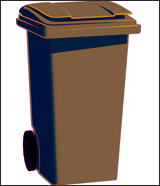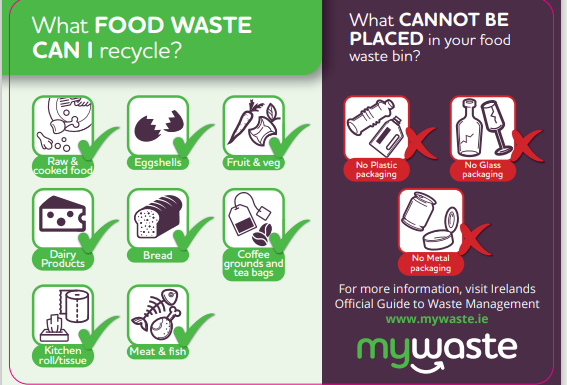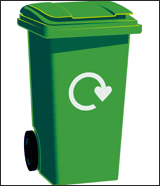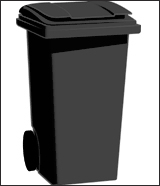What are the benefits of separating waste?
Separating our waste into organics (brown bin), recyclables (green bin) and general waste (black bin) ensures that:
- The amount of land required for landfills will be reduced as recyclable waste is reused instead of ending up in landfill sites.
- The amount of environmental pollution is reduced through less waste being disposed of in landfills and the reuse of waste as compost ensuring less need for chemical fertilisers.
- Waste can actually become a resource. It can be composted or treated through anaerobic digestion to produce compost or digestate that can be spread on the land, removing the need for chemical fertilisers and can also be a source of energy production. All this will help create and secure jobs, help reduce our dependence on fossil fuels and improve our carbon footprint and assist in Ireland’s promotion as a green economy.



